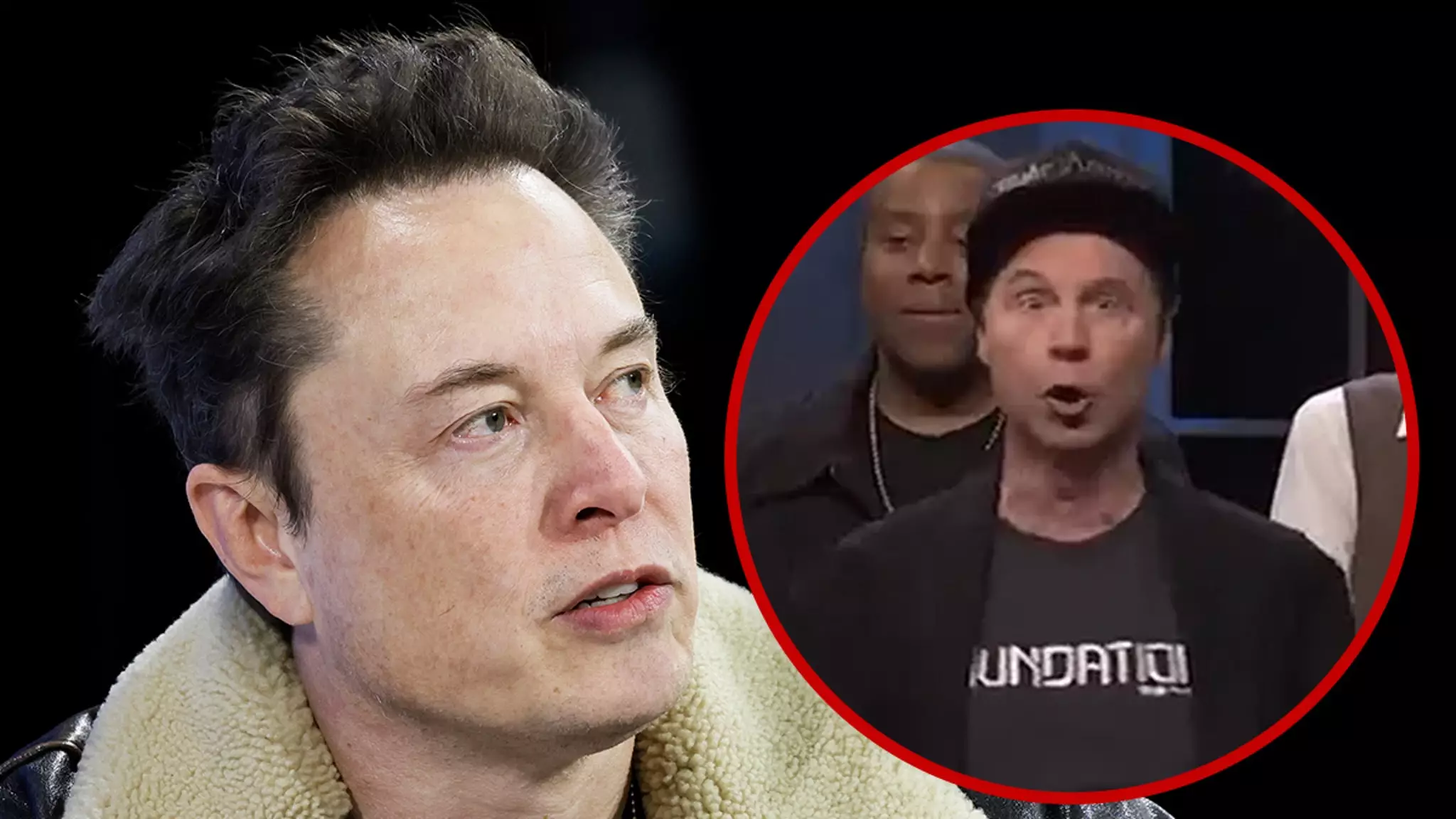In the world of entertainment, the relationship between celebrities and satire is often complicated. Recently, this dynamic was brought to the forefront when Elon Musk publicly critiqued a “Saturday Night Live” skit featuring comedian Dana Carvey’s impersonation of him. This occurrence raises intriguing questions about how public figures react to comedic portrayals, especially in an increasingly polarized political climate.
During a ‘Saturday Night Live’ cold open, cast members hilariously pledged their allegiance to Donald Trump while humorously suggesting they could migrate to Mars if things went awry on Earth. Enter Dana Carvey, who impersonated Musk in a comical yet exaggerated manner. His performance, characterized by frantic movements and playful references to SpaceX’s failures, is emblematic of how comedians often utilize hyperbole to capture the essence of their subjects.
However, what Musk found particularly noteworthy was not the portrayal itself, but rather the apparent bitterness of the show’s cast over recent electoral outcomes—a sentiment he perceived as excessive. Given Musk’s prominent support of Trump, his reaction underscores the delicate balance between humor and political allegiance. To him, the irony lay in the cast’s overt discontent, which starkly contrasted his own buoyant support for the electoral victor.
Elon Musk is no stranger to controversy, frequently treading the thin line between technological visionary and polarizing public figure. His fervent backing of Trump, including campaigning for him ahead of elections, paints a picture of an individual whose political views are as front-and-center as his business endeavors. The juxtaposition of his corporate image with his political activities can create a complex public perception that is easily exploited by the satire of variety shows like SNL.
With this in mind, let’s consider the ramifications of Musk’s engagement with such humor. His online responses to the skit indicate a possible shift towards a more combative interaction with comedic platforms. By publicly criticizing the sketches, Musk risks not only challenging the comedians but also embroiling himself in a contentious dialogue that may diminish the broader culture of satire that often pushes boundaries in political discourse.
The implications of Musk’s situation could extend beyond a single skit. As we move further into a second Trump administration, it’s likely that the intersection of politics and comedy will intensify. The anticipation of more impersonations and comedic jabs aimed at Musk signifies a potential new trend in political satire that could frame significant issues of governance through a humorous lens.
Ultimately, Musk’s reaction represents a microcosm of a larger cultural phenomenon where celebrities, politicians, and comedians exist in a feedback loop. As satire continues to evolve, both public figures and comedians must navigate their roles thoughtfully, recognizing that humor is not just a tool for entertainment but a powerful mechanism for social commentary and critique.

